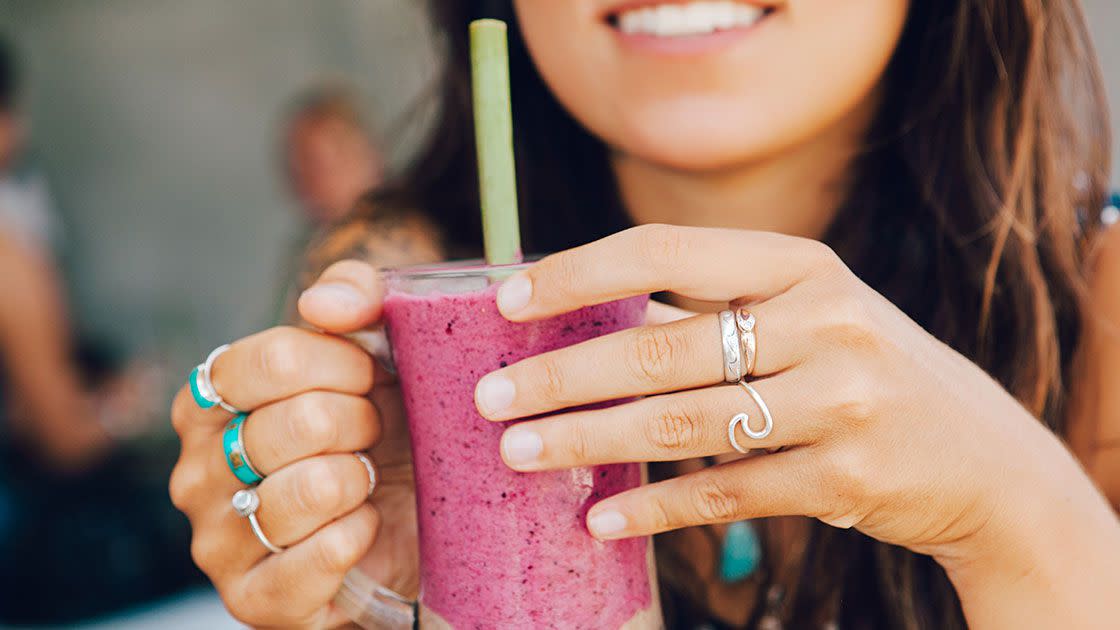Are Meal Replacement Shakes and Smoothies Healthy?

Photo: Shutterstock
First there were protein shakes–the answer to post-workout replenishment. Then those fruit and veggie powerhouses, smoothies (see: these veggie-filled sips). Now new earthy-tasting concoctions are moving in on the beverage lists of fit women. The healthiest of these drinks are packed with ingredients derived from whole foods, like grass-fed whey protein, organic brown rice protein, psyllium husks, flax, and chlorella.
What makes them different from other good-for-you sips? Down one of these nutrient-rich shakes, and you'll get a meal-size portion of protein, carbs, fat, and micronutrients. "These drinks are becoming a huge trend," says Lauren Blake, R.D.N., of the Ohio State University Wexner Medical Center. Their popularity is being driven by those who prioritize healthy eating but don't have the time to prep ideal meals, she says. "Because the drinks are nutritionally balanced and require no effort [they come premixed or as a powder you add water to], they're fast becoming the solution for busy women."
But are they really such a savior? Well, nothing beats eating whole foods, period. The experts agree on that. While the sips aren't an all-in-one health fix, Blake says that if you occasionally skip meals or grab a granola bar for lunch, the drinks can be your better option. (What's not a great idea? Green juice-here's why.)
If you're going to give the new shakes a shot, here's what to watch for in order to pick the best one.
1. Crunch the numbers.
As a stand-in for a meal, a shake that provides 350 to 400 calories, at least 20 grams of protein, and little to no added sugar is best, Blake says. That's enough to keep you satisfied and provide steady energy for hours.
2. Be a minimalist.
"The fewer ingredients a shake contains, the better," Blake says. Some drinks' labels practically require a chemistry degree to decipher. Shakes with ingredients derived from whole foods will deliver more of the antioxidants and phytonutrients that less-natural ones miss out on.
3. And chew, too.
"No matter how many nutrients it has or what claims it makes, a drink can't provide the same protective compounds that we get from actual food," Blake notes. So when you sub a shake for a meal, make sure to eat healthy, high-quality food for the rest of the day. "Fill half your plate with nutrient-dense vegetables like broccoli, beets, and greens," Blake says, "plus a serving each of whole grains and lean protein."

